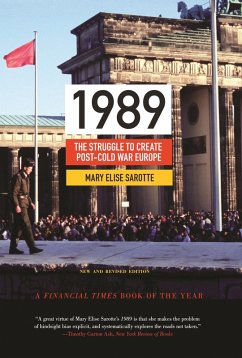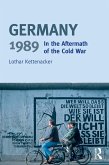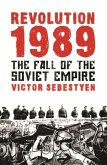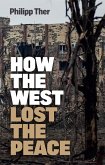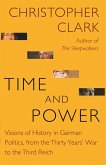How the political events of 1989 shaped Europe after the Cold War
1989 explores the momentous events following the fall of the Berlin Wall and the effects they have had on our world ever since. Based on documents, interviews, and television broadcasts from Washington, London, Paris, Bonn, Berlin, Warsaw, Moscow, and a dozen other locations, 1989 describes how Germany unified, NATO expansion began, and Russia got left on the periphery of the new Europe.
This updated edition contains a new afterword with the most recent evidence on the 1990 origins of NATO's post-Cold War expansion.
1989 explores the momentous events following the fall of the Berlin Wall and the effects they have had on our world ever since. Based on documents, interviews, and television broadcasts from Washington, London, Paris, Bonn, Berlin, Warsaw, Moscow, and a dozen other locations, 1989 describes how Germany unified, NATO expansion began, and Russia got left on the periphery of the new Europe.
This updated edition contains a new afterword with the most recent evidence on the 1990 origins of NATO's post-Cold War expansion.
"Sarotte's focus is on Germany. . . . [She] describes a host of competing conceptions of post-cold-war Europe that flourished, mutated and perished in the maelstrom of events that led up to German unity. . . . Two decades later . . . [t]here are still nuclear missiles aimed across the continent. It's hard to imagine that it could have been otherwise--but, Sarotte shows us, it could have been."--Paul Hockenos, New York Times Book Review

